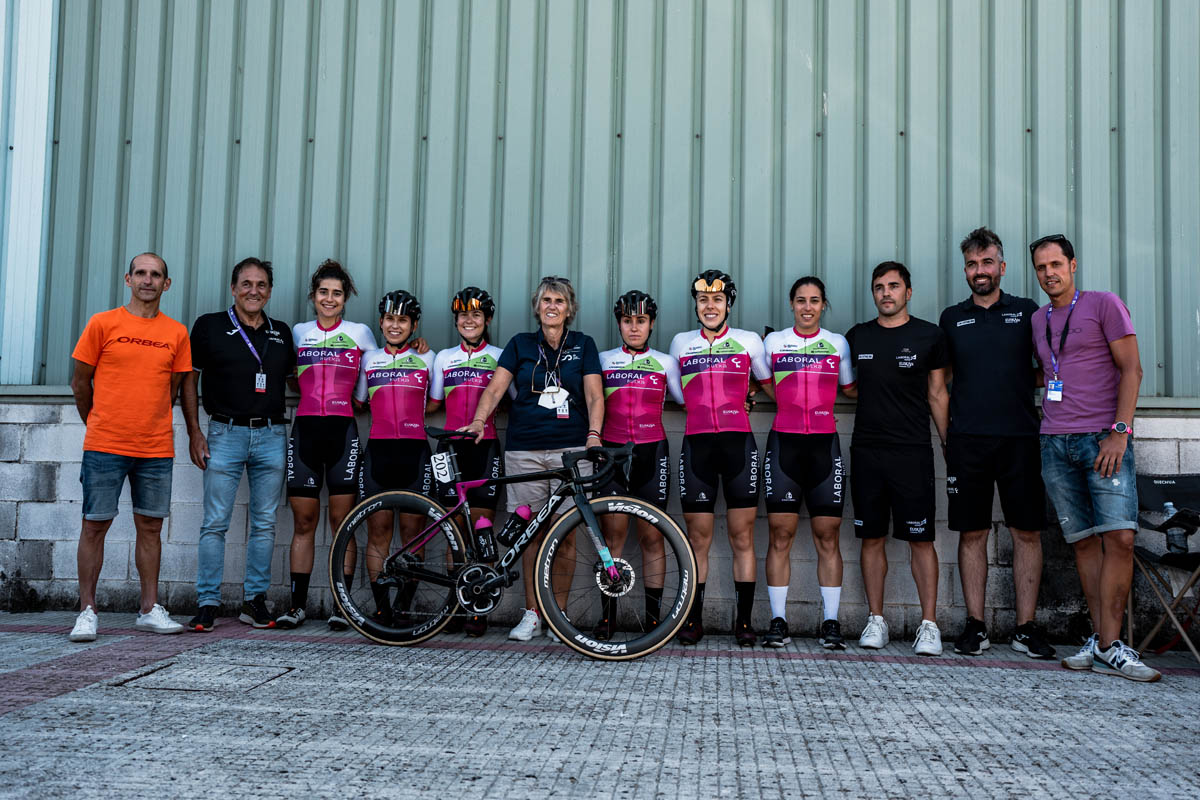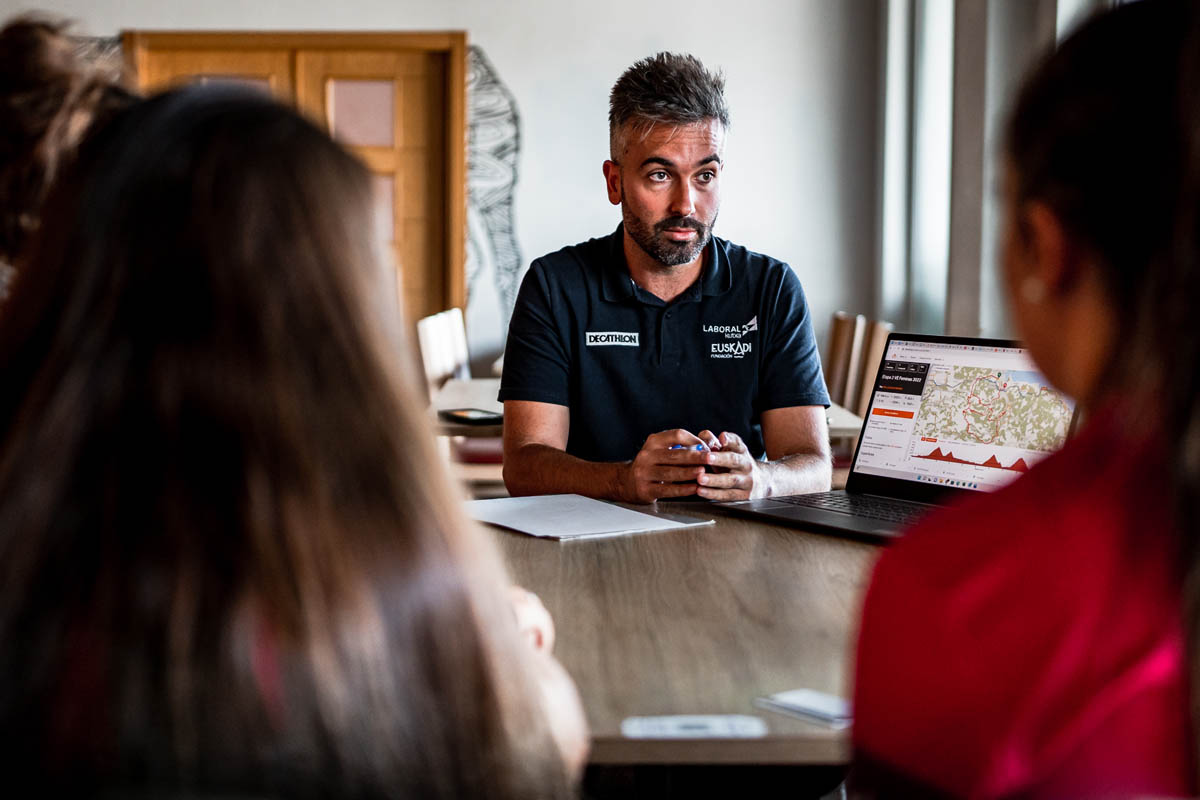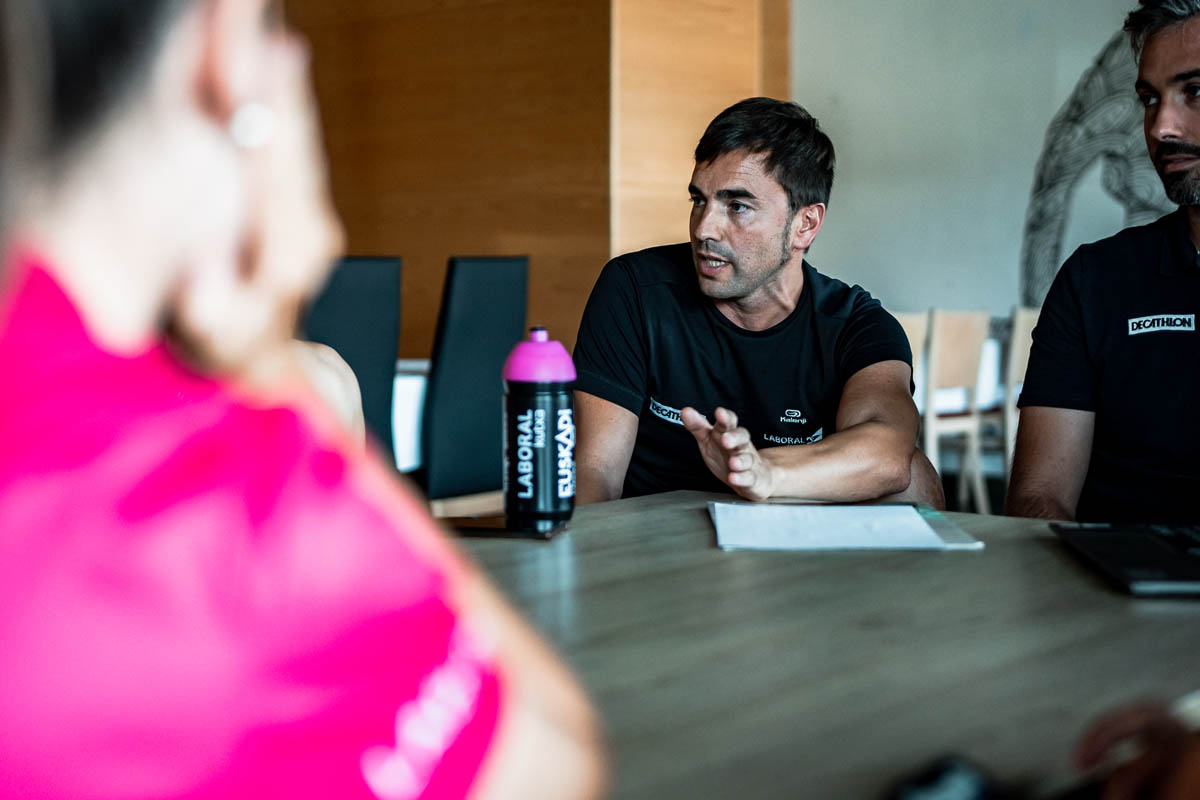Laboral Kutxa aim for Women's WorldTour in 2024 with €1.8 million budget
Spanish Women's Continental Team set to expand in line with men's Euskaltel-Euskadi



The Women's Continental team Laboral Kutxa-Fundación Euskadi is set to expand with a €1.8 million budget and aims to acquire a Women's WorldTeam licence in 2024.
The Spain-based squad confirmed to Cyclingnews that it plans to follow in the footsteps of the men's Euskaltel-Euskadi and continue to develop riders from the Basque Country, thanks to the long-term commitments from sponsors Laboral Kutxa, Orbea and Etxeondo. Laboral Kutxa have extended their partnership with the team through to 2029.
"Our aim is to be a reference point at the world level, boosting women's racing and based on the riders who have grown up in our sport in our area," said team manager Aitor Galdos in an interview with Cyclingnews from the Ceratizit Challenge by La Vuelta.
"We believe the ideal place to do that is the Women's WorldTour, as it allows you access to the best races, the best riders and provides maximum exposure to the team and the message we want to transmit,"
The women's team formed as an amateur and club team from 2018 through 2020. It then registered as a UCI Women's Continental Team beginning in 2021 under the expanded sponsorship of Laboral Kutxa-Fundación Euskadi for 2021 and 2022.
Like the men's ProTeam Euskaltel-Euskadi, the women's program will focus on developing riders from the Basque Country. It will also bring together an international roster that will be competitive in the bigger races on the calendar.
"The idea is to work with the base of the sport in Euskadi [Basque Country – ed.]. This means we have to try to count on the best Basque riders of any particular point in time because, among other things, we want to be a reference point for that cycling base here," Galdos said.
Get The Leadout Newsletter
The latest race content, interviews, features, reviews and expert buying guides, direct to your inbox!
"In any case, the team is open to signing riders from elsewhere, so we can reach the competitive level necessary to take part in Women's WorldTour races. It will enrich our project too, as it will allow the riders from here to share other cycling cultures and different ways of experiencing our sport."
The team currently has 13 riders but aims to bring in eight new next season to compete on the growing international calendar.
"Our priority is to have riders who understand the identity of the team and the Fundacion Euskadi. As far as is possible, we'd like to count on riders from Euskadi [Basque Country - ed.], both currently racing and those we will form in our team. On top of that, we'll bring in riders who aren't from here, who accept the team philosophy and can provide us with certain top performances in the races we'll take part in across the world."
Spanish cycling alone has become a mecca for world-class women's cycling. This year, it boasted three races on the top-tier calendar; Itzulia Women, Ceratizit Challenge by La Vuelta, Vuelta a Burgos Feminas.
There was also the highly contested Vuelta CV Feminas, Setmana Ciclista Valenciana, Andalucia Ruta Del Sol,Gran Premio Ciudad de Eibar, Emakumeen Nafarroako, Navarra Women's Elite Classics, Durango-Durango Emakumeen Saria.
"It's true that in Spain, there are more women's races at all levels, which is good news. Races ranging from events with the best riders in the world to those designed to bring on future talents are great for developing the sport. My thanks to the race organisers for all their hard work," Galdos said.
Acquiring a Women's WorldTour license is a big undertaking. However, Galdos believe that with a €1.8 million budget and committed sponsors, it will be able to fulfil the sport governing body's four main requirements; financial, ethical, administrative and organisational.
"The team's philosophy is always to stay ahead of these requirements, not just the current ones but also the future ones. We already fulfil some of these requirements without any direct obligation and we'll continue working in the same direction in the years to come," Galdos said.
"The UCI regulations don't specify minimum budget levels or contract duration, but their requirements have certain implicit costs which we think we can handle comfortably. On the other hand, long-term sponsor trust will enable us to work calmly on an ambitious project for the next few years.
"That budget of €1.8 million is what we aim for in 2024 and each year beyond. We are well on the way to it, and soon we will be announcing new sponsors, and we may be able to increase it even further. In 2023, we won't be able to get to that kind of level, but we will be growing compared to 2022, and it will be a year of transition towards our Women's WorldTour objective."
There are currently eight Women's Continental Teams registered in Spain, and all of them could face minimum salary requirements of €965 monthly along with mandatory team sizes, staffing and infrastructure regulations if they want to compete in 2023.
These regulations could be enforced by the Royal Spanish Cycling Federation (RFEC), which would require teams to register with the Social Security (SS) and provide a Minimum Interprofessional Salary (SMI), along with other infrastructure developments.
Galdos said that while these new regulations could affect some of the smaller teams in Spain, they likely would not significantly impact Laboral Kutxa-Fundación Euskadi in the coming season.
"Evidently, any norm that affects Conti teams in Spain affects us. But we are clear about our route map, and this new norm is in line with certain things we were already planning on doing. So, although it may affect some initial plans, we'll adapt as we think this is a positive norm for cycling."
Alasdair Fotheringham has been reporting on cycling since 1991. He has covered every Tour de France since 1992 bar one, as well as numerous other bike races of all shapes and sizes, ranging from the Olympic Games in 2008 to the now sadly defunct Subida a Urkiola hill climb in Spain. As well as working for Cyclingnews, he has also written for The Independent, The Guardian, ProCycling, The Express and Reuters.
